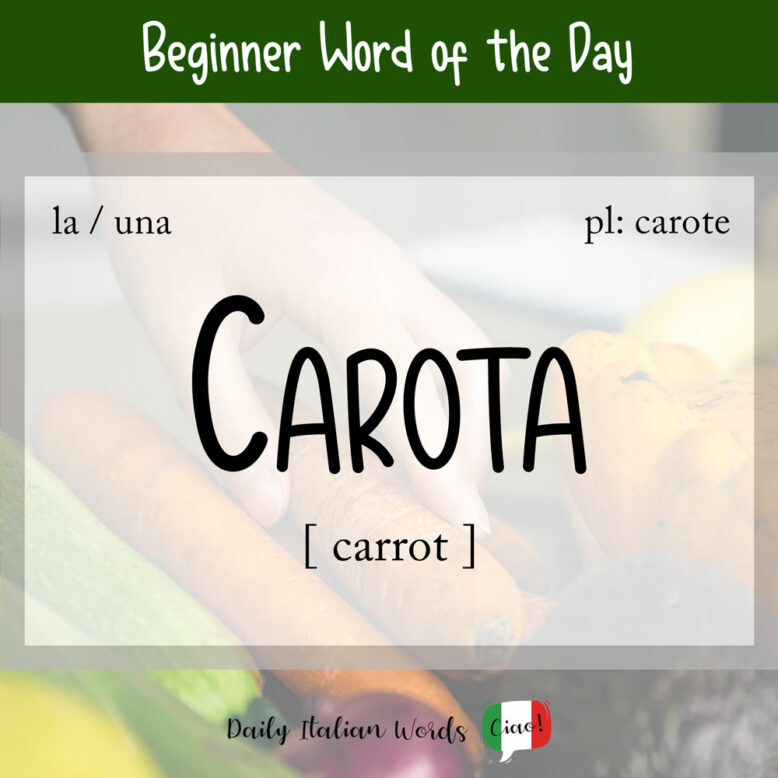Today’s word of the day was my favourite vegetable as a child: the humble carrot or carota (feminine, plural: carote) in Italian.

Once you’ve washed (hai lavato) and peeled (pelato) your carrots, there are numerous ways to prepare them. I always preferred eating raw carrot sticks (bastoncini di carote crude) as a child but these days, my husband and I tend to chop them up into pieces (tagliarle* a pezzetti) and either boil them (bollirle*) in a pot or roast them (arrostirle*) in the oven. If we decide to eat them raw, we usually grate them (le grattuggiamo) into a bowl and season them with salt, pepper, lemon and olive oil to make a delicious side dish.
*Note: Pronouns can join onto the end of infinitive verbs in Italian. For example, you can say Preferisco tagliare le carote a pezzetti (I prefer to cut the carrots into pieces) or, if the topic of conversation is already clear, Preferisco tagliarle a pezzetti (I prefer to cut them into pieces).
Da bambino mangiavo le carote molto volentieri.
As a child I was always very happy to eat carrots.

Two foods that contain carrots are succo di carota (carrot juice) and torta di carote (carrot cake), although I would say that neither is particularly popular in Italy.
In our family, we have quite a few carrot tops (pel di carota) including my grandmother and aunt. Redheads may also be referred to as having capelli (color) carota (carrot coloured hair) in Italian, although capelli rossi (red hair) is the more common expression.

The expression vendere / piantare carote (to sell / plant carrots) is another way of saying dire le bugie (to tell lies).
In both English and Italian, the idiomatic phrase “carrot and stick” (il bastone e la carota) is a metaphor for the combination of a reward (the carrot) and punishment (the stick) to induce a desired behaviour.
Heather Broster is a graduate with honours in linguistics from the University of Western Ontario. She is an aspiring polyglot, proficient in English and Italian, as well as Japanese, Welsh, and French to varying degrees of fluency. Originally from Toronto, Heather has resided in various countries, notably Italy for a period of six years. Her primary focus lies in the fields of language acquisition, education, and bilingual instruction.


